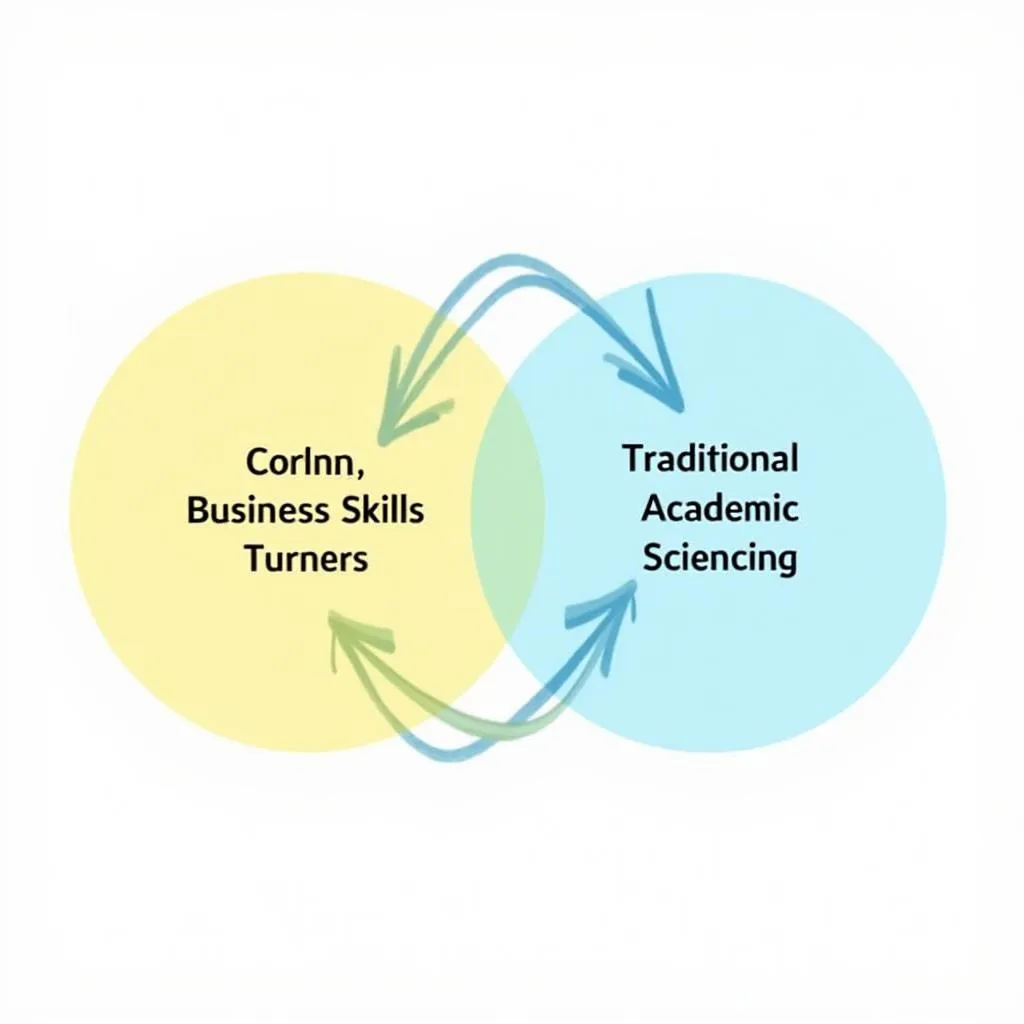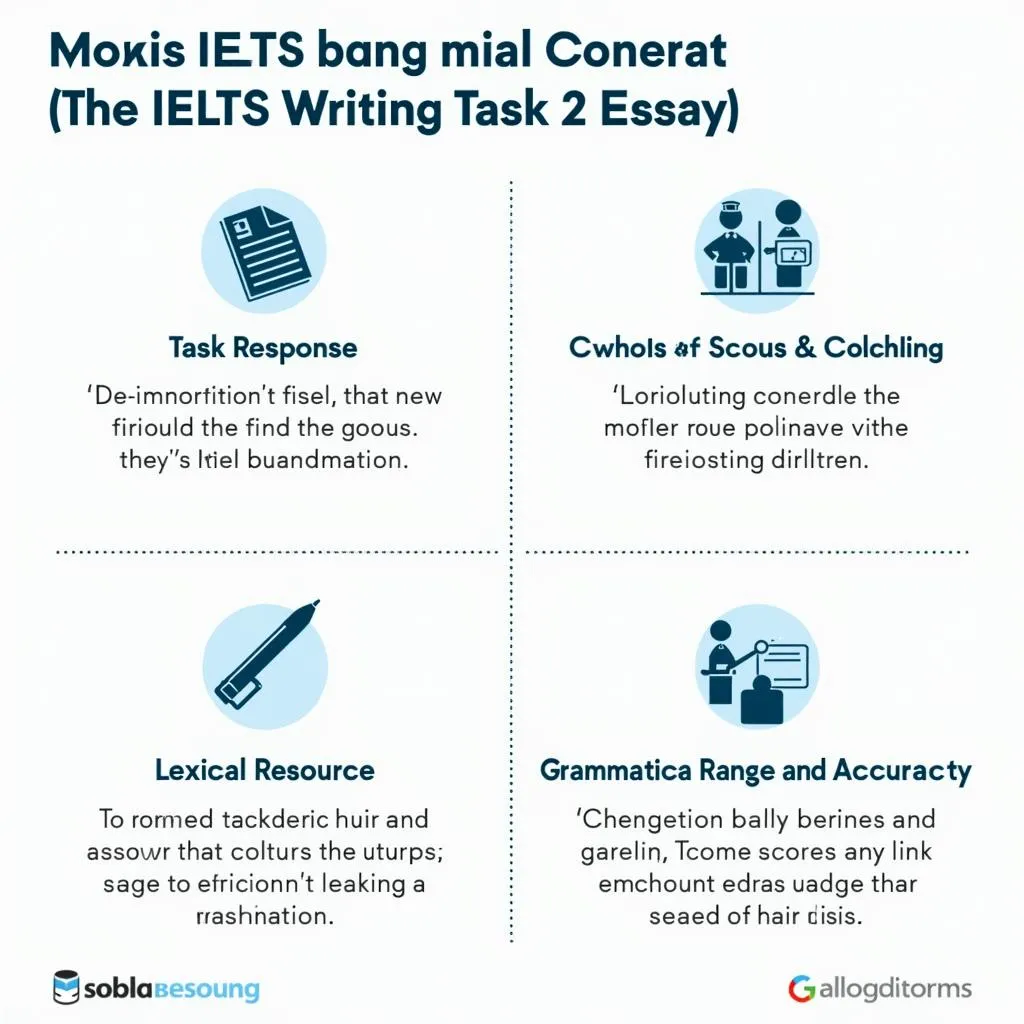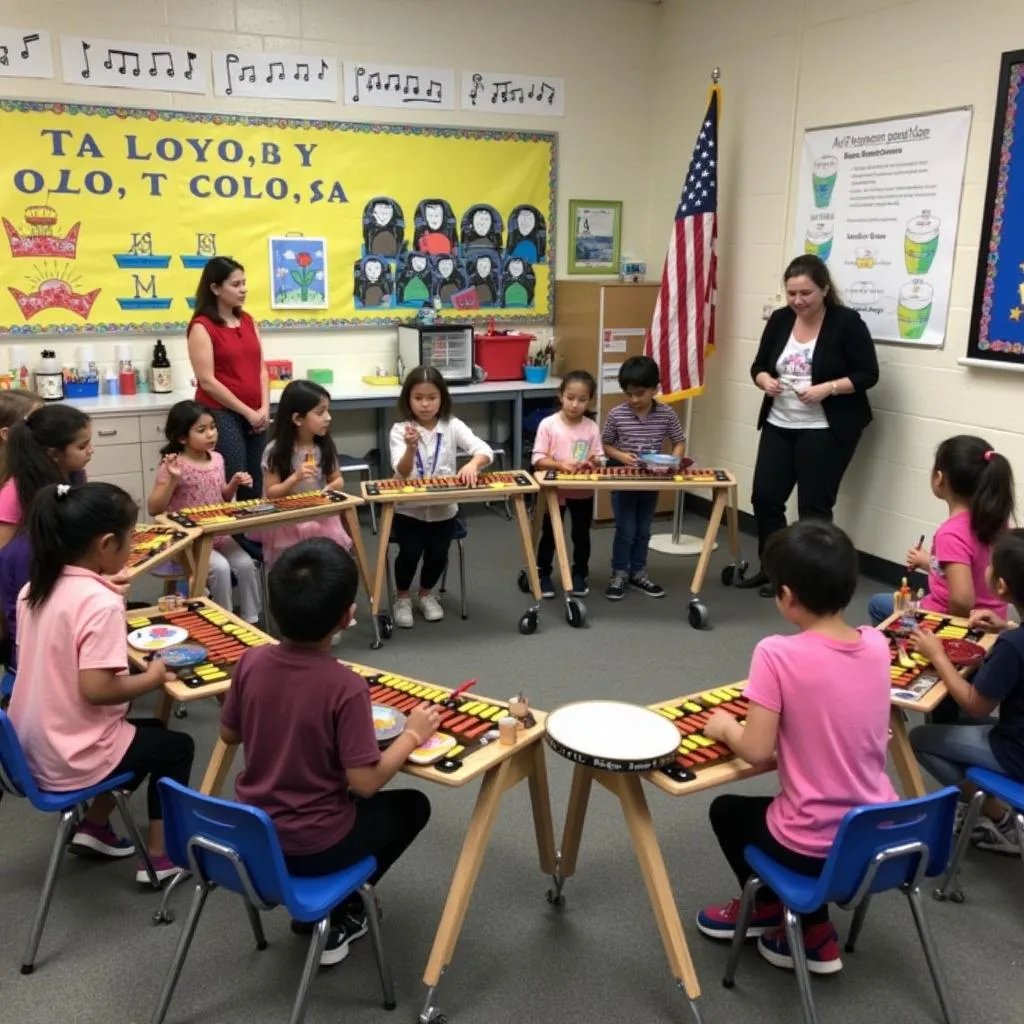The topic of whether schools should focus more on career-oriented subjects has been a recurring theme in IELTS Writing Task 2 exams. Based on analysis of past exam questions and current educational trends, this topic is likely to appear frequently in future tests. Let’s examine a specific question related to this theme that has appeared in recent IELTS exams:
Nội dung bài viết
Some people think that schools should focus more on teaching career-oriented subjects rather than traditional academic subjects. To what extent do you agree or disagree?
This question asks test-takers to consider the balance between vocational and academic education in schools. Let’s analyze the question and provide sample essays for different band scores.
Question Analysis
The question presents two opposing views on education:
- Schools should focus more on career-oriented subjects
- Schools should maintain focus on traditional academic subjects
Key points to consider:
- Define career-oriented subjects (e.g., technical skills, business, IT) and traditional academic subjects (e.g., literature, history, pure sciences)
- Discuss the pros and cons of each approach
- Consider the long-term impact on students and society
- Provide a balanced argument before stating your position
Now, let’s look at sample essays for different band scores.
Sample Essay 1 (Band 8-9)
In recent years, there has been a growing debate about whether schools should prioritize career-oriented subjects over traditional academic disciplines. While I acknowledge the importance of preparing students for the job market, I believe that a balanced approach incorporating both types of subjects is crucial for a well-rounded education.
Proponents of career-oriented education argue that it better equips students for the realities of the job market. By focusing on practical skills such as coding, business management, or vocational training, schools can produce graduates who are immediately employable and can contribute to the economy. This approach aligns with the why education should focus on preparing students for the future job market, as it addresses the skills gap often cited by employers. Moreover, career-oriented subjects can increase student engagement by demonstrating the real-world applications of their studies.
However, overemphasizing career-oriented subjects at the expense of traditional academic disciplines could have detrimental effects. Academic subjects like literature, history, and pure sciences foster critical thinking, analytical skills, and a broader understanding of the world. These skills are invaluable in any career and are essential for adapting to an ever-changing job market. Furthermore, a strong foundation in academic subjects supports the importance of interdisciplinary learning in education, which is increasingly recognized as crucial for innovation and problem-solving in complex fields.
A balanced curriculum that integrates both career-oriented and traditional academic subjects offers the best of both worlds. This approach would provide students with practical skills while also developing their intellectual capabilities and cultural awareness. For example, a student studying computer science could benefit from courses in ethics and philosophy, enhancing their ability to consider the societal implications of technology. Similarly, a history student could gain valuable skills in data analysis and digital research methods, increasing their employability in various sectors.
In conclusion, while the importance of career preparation cannot be ignored, I believe that schools should strive for a balance between career-oriented and traditional academic subjects. This integrated approach would not only prepare students for immediate employment but also equip them with the adaptability and critical thinking skills necessary for long-term success in a rapidly evolving global economy.
 Balanced curriculum integrating career-oriented and academic subjects
Balanced curriculum integrating career-oriented and academic subjects
Sample Essay 2 (Band 6-7)
The question of whether schools should focus more on teaching career-oriented subjects rather than traditional academic subjects is a topic of much debate. In my opinion, while career-oriented subjects are important, schools should maintain a balance between both types of education.
Career-oriented subjects have some clear advantages. They can help students develop practical skills that are directly applicable in the job market. For example, learning computer programming or business management can make graduates more attractive to employers. This can lead to better job prospects and higher salaries after graduation. Also, these subjects often feel more relevant to students, which can increase their motivation to learn.
However, traditional academic subjects also have significant value. Subjects like mathematics, literature, and science help develop critical thinking and problem-solving skills. These skills are important in any career and in life in general. Academic subjects also provide a broad knowledge base that can be useful in many different situations. For instance, understanding history can help in making better decisions about current events.
Furthermore, focusing only on career-oriented subjects might be short-sighted. The job market is constantly changing, and skills that are in demand today might not be as valuable in the future. A broad educational foundation can help students adapt to these changes more easily. It’s also important to consider that education is not just about getting a job, but about personal growth and becoming a well-rounded individual.
I believe the best approach is to combine both career-oriented and traditional academic subjects in the curriculum. This would give students practical skills for their future careers while also developing their overall intellectual abilities. Schools could offer a mix of subjects and allow students some flexibility in choosing their courses based on their interests and career goals.
In conclusion, while career-oriented subjects are important, I disagree that schools should focus on them at the expense of traditional academic subjects. A balanced approach that includes both types of education is likely to be most beneficial for students in the long run.
Sample Essay 3 (Band 5-6)
The topic of schools teaching career-oriented subjects instead of traditional academic subjects is very important. I think both types of subjects are necessary for students.
Career-oriented subjects are good because they help students get jobs. For example, if a student learns computer skills, they can find work in IT companies. This is important because many young people worry about finding jobs after school. Also, these subjects can be interesting for students who don’t like traditional subjects.
But traditional academic subjects are also important. Subjects like math, science, and literature help students think better. They learn how to solve problems and understand complex ideas. These skills are useful in any job. Also, academic subjects teach students about the world and help them become smarter people.
I think schools should teach both kinds of subjects. They could have some career-oriented classes and some academic classes. This way, students can learn practical skills and also improve their thinking abilities. It’s good to give students choices about what they want to study.
In my country, some schools are starting to do this. They have normal classes but also offer special classes for job skills. I think this is a good idea and more schools should do it.
In conclusion, I believe schools should not focus only on career-oriented subjects. They should teach both career subjects and academic subjects. This will help students be ready for jobs and also be smart, well-rounded people.
Explanation of Band Scores
Band 8-9 Essay:
This essay demonstrates excellent writing skills and a sophisticated approach to the topic:
- Task Response: The essay fully addresses all parts of the task, presenting a well-developed response with relevant, extended, and supported ideas.
- Coherence and Cohesion: Ideas are logically organized with clear progression throughout. A range of cohesive devices is used effectively.
- Lexical Resource: A wide range of vocabulary is used with very natural and sophisticated control of lexical features.
- Grammatical Range and Accuracy: A wide range of structures is used with full flexibility and accuracy.
Band 6-7 Essay:
This essay shows a competent handling of the task, though with some limitations:
- Task Response: The essay addresses all parts of the task, though some parts may be more fully covered than others.
- Coherence and Cohesion: Information and ideas are generally arranged coherently, and there is a clear overall progression.
- Lexical Resource: An adequate range of vocabulary is used for the task, with some attempts at less common vocabulary.
- Grammatical Range and Accuracy: A mix of simple and complex sentence forms is used, with generally good control, though with some errors.
Band 5-6 Essay:
This essay addresses the task in a basic way:
- Task Response: The essay addresses the task only partially, with limited development of ideas.
- Coherence and Cohesion: The overall progression is evident, but not always clear. Basic cohesive devices are used.
- Lexical Resource: A limited range of vocabulary is used, adequate for basic communication but lacking precision.
- Grammatical Range and Accuracy: A limited range of structures is used, with some accuracy in simple sentences but frequent errors in more complex ones.
 IELTS Writing Task 2 scoring criteria
IELTS Writing Task 2 scoring criteria
Key Vocabulary to Remember
-
Career-oriented (adjective) – /kəˈrɪər ˈɔːrientɪd/ – focused on preparing for a specific profession or job
-
Vocational (adjective) – /vəʊˈkeɪʃənl/ – relating to skills needed for a particular job or trade
-
Academic (adjective) – /ækəˈdemɪk/ – relating to education and scholarship
-
Curriculum (noun) – /kəˈrɪkjələm/ – the subjects comprising a course of study in a school or college
-
Interdisciplinary (adjective) – /ˌɪntədɪsəˈplɪnəri/ – involving two or more academic disciplines
-
Adaptability (noun) – /əˌdæptəˈbɪləti/ – the quality of being able to adjust to new conditions
-
Critical thinking (noun phrase) – /ˈkrɪtɪkl ˈθɪŋkɪŋ/ – the objective analysis and evaluation of an issue to form a judgment
-
Well-rounded (adjective) – /wel ˈraʊndɪd/ – having a personality that is fully developed in all aspects
-
Employability (noun) – /ɪmˌplɔɪəˈbɪləti/ – the quality of being suitable for paid work
-
Innovation (noun) – /ˌɪnəˈveɪʃn/ – the introduction of new ideas, methods, or things
These vocabulary items are crucial for discussing education and career preparation in IELTS essays. Understanding and using them correctly can significantly enhance your writing and speaking performances.
Conclusion
The topic of career-oriented versus traditional academic subjects in schools is likely to remain relevant in future IELTS exams. To prepare, practice writing essays that:
- Compare and contrast the benefits of both approaches
- Discuss the long-term impacts on students and society
- Consider the changing nature of the job market and its implications for education
- Explore the potential for integrating career skills into traditional academic subjects
Remember to how to encourage children to pursue their interests while also ensuring they receive a well-rounded education. As you practice, focus on developing clear arguments, using varied vocabulary, and maintaining coherent essay structure.
For effective practice, try writing your own essay on this topic and share it in the comments section. This active approach to learning can significantly improve your IELTS Writing skills and prepare you for success in the exam.


